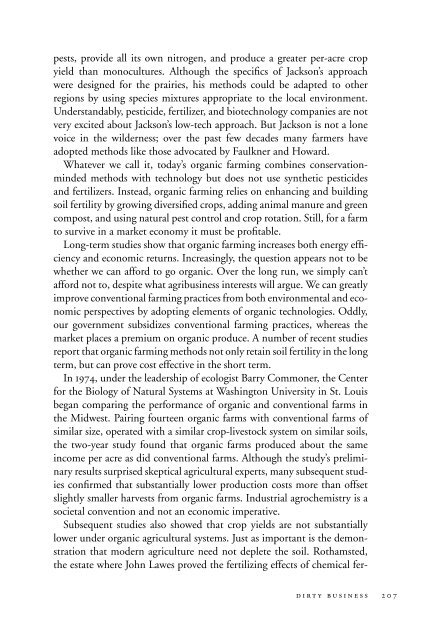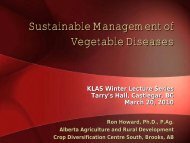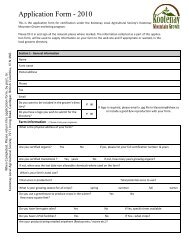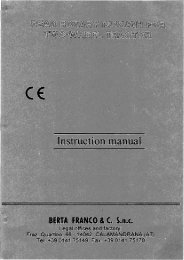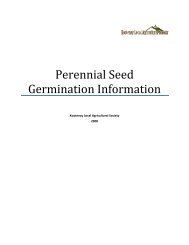Dirt: The Erosion of Civilizations - Kootenay Local Agricultural Society
Dirt: The Erosion of Civilizations - Kootenay Local Agricultural Society
Dirt: The Erosion of Civilizations - Kootenay Local Agricultural Society
Create successful ePaper yourself
Turn your PDF publications into a flip-book with our unique Google optimized e-Paper software.
pests, provide all its own nitrogen, and produce a greater per-acre crop<br />
yield than monocultures. Although the specifics <strong>of</strong> Jackson’s approach<br />
were designed for the prairies, his methods could be adapted to other<br />
regions by using species mixtures appropriate to the local environment.<br />
Understandably, pesticide, fertilizer, and biotechnology companies are not<br />
very excited about Jackson’s low-tech approach. But Jackson is not a lone<br />
voice in the wilderness; over the past few decades many farmers have<br />
adopted methods like those advocated by Faulkner and Howard.<br />
Whatever we call it, today’s organic farming combines conservationminded<br />
methods with technology but does not use synthetic pesticides<br />
and fertilizers. Instead, organic farming relies on enhancing and building<br />
soil fertility by growing diversified crops, adding animal manure and green<br />
compost, and using natural pest control and crop rotation. Still, for a farm<br />
to survive in a market economy it must be pr<strong>of</strong>itable.<br />
Long-term studies show that organic farming increases both energy efficiency<br />
and economic returns. Increasingly, the question appears not to be<br />
whether we can afford to go organic. Over the long run, we simply can’t<br />
afford not to, despite what agribusiness interests will argue. We can greatly<br />
improve conventional farming practices from both environmental and economic<br />
perspectives by adopting elements <strong>of</strong> organic technologies. Oddly,<br />
our government subsidizes conventional farming practices, whereas the<br />
market places a premium on organic produce. A number <strong>of</strong> recent studies<br />
report that organic farming methods not only retain soil fertility in the long<br />
term, but can prove cost effective in the short term.<br />
In 1974, under the leadership <strong>of</strong> ecologist Barry Commoner, the Center<br />
for the Biology <strong>of</strong> Natural Systems at Washington University in St. Louis<br />
began comparing the performance <strong>of</strong> organic and conventional farms in<br />
the Midwest. Pairing fourteen organic farms with conventional farms <strong>of</strong><br />
similar size, operated with a similar crop-livestock system on similar soils,<br />
the two-year study found that organic farms produced about the same<br />
income per acre as did conventional farms. Although the study’s preliminary<br />
results surprised skeptical agricultural experts, many subsequent studies<br />
confirmed that substantially lower production costs more than <strong>of</strong>fset<br />
slightly smaller harvests from organic farms. Industrial agrochemistry is a<br />
societal convention and not an economic imperative.<br />
Subsequent studies also showed that crop yields are not substantially<br />
lower under organic agricultural systems. Just as important is the demonstration<br />
that modern agriculture need not deplete the soil. Rothamsted,<br />
the estate where John Lawes proved the fertilizing effects <strong>of</strong> chemical fer-<br />
dirty business 207


